At the first N4G Summit in 2013, 110 stakeholders committed to prevent at least 20 million children from being stunted – saving at least 1.7 million lives by 2020. These commitments deliver much-needed action on policy and financing commitments to the Sustainable Development Goal (SDG) 2—Ending Hunger in All its Forms—which is an underlying driver of 12 of the 17 SDGs. As we continue the Nutrition for Growth Year of Action, take a look at how pledges made during the N4G summits in London (2013) and Milan (2017), have brought about positive impacts on global nutrition.
Early infant nutrition is a critical building block to ensuring children can reach their full potential later in life. The Family Larsson-Rosenquist Foundation’s (FLRF) commitment to Nutrition for Growth (N4G) was made in Milan in 2017 with the aim of providing long-term sustainable funding to strengthen the field of breastfeeding and ultimately improve breastfeeding rates in low- and middle-income countries (LMICs), thus contributing to achieving the Sustainable Development Goals (SDGs). Backed by sound science, our objective is to ensure breastfeeding becomes the norm and improves the health of mothers and children worldwide.

While a significant evidence base exists on breastfeeding to inform policy and practice, it is the operationalisation of policy that is often difficult. FLRF aims to bridge this gap and improve implementation by contributing to the long-term discovery, dissemination, and deployment of evidence-based knowledge. FLRF provides funding through endowments and grants and develops resources to transform knowledge and support sustainable capacity building efforts where they are most needed to drive impact at scale. Select programme activities include:
- FLRF has facilitated nine endowed chairs in six breastfeeding research centres around the globe. These fully funded research groups focus on key topics of their choosing including basic research (endocrinology, immunology, microbiome, neuro development), behavioural economics, and epidemiology.
- In collaboration with the International Society for Research in Human Milk and Lactation (ISRHML), FLRF’s Trainee Expansion Program (TEP) is cultivating the next generation of scientists in the field of breastfeeding and breastmilk. Scholarships offer opportunities to build experience and foster relationships with peers and mentors globally. “I am thrilled that the Trainee Bridge Fund (TBF) enabled me to study the effect of maternal stress on breastmilk composition and the neonatal gut microbiome. It allowed me to expand on my preclinical expertise, exploring the field of human milk research for the first time. The TBF enables young researchers to develop into experienced scientists in this exciting field of research,” Eva Naninck PhD, Policy Officer Medical Science Domain, ROYAL NETHERLANDS ACADEMY OF ARTS AND SCIENCES, and prior award recipient.
- FLRF has funded projects with the potential to change policy and influence social behaviour change, which can drive impact at scale. For example, Becoming Breastfeeding Friendly: A Guide to Global Scale Up (BBF) with renowned Yale School of Public Health, INTERPRACTICE-21st with University of Oxford, and the systematic review of breastfeeding in conflict settings with Aga-Khan University and the Hospital for Sick Children.
- Preterm and vulnerable infants especially benefit from breastmilk, and FLRF has invested in two key topics in this field. Together with our partner PATH, a Resource Toolkit for Establishing and Integrating Human Milk Banks guides milk banks to focus on supporting mothers to provide milk for their own infants. This is also the theme for PROVIDE – A Training Compendium for Providing Mothers Own Milk in NICU Settings. Developed by Rush University Medical Centre, the compendium offers training for health professionals and information for families.
- In 2020, with The Global Health Network of University of Oxford, FLRF launched LactaHub, a resource for evidence-based breastfeeding and human lactation knowledge. It will provide a ‘one-stop-shop’ for knowledge sharing to facilitate effective scale-up of breastfeeding promotion, protection, and support. LactaHub will also develop and aggregate frameworks, guidelines, and tools and build a network of communities of practice for knowledge sharing and global collaboration. “LactaHub provides ready access to resources and tools for the those in the breastfeeding world. In particular, the Human Milk Banking Toolkit is a unique and invaluable resource for anyone who is working in this field or would like to learn more about human milk banking,” Gillian Weaver, International Milk Banking Specialist and Consultant, Co-founder; Hearts Human Milk Bank and Human Milk Foundation.
- Finally, FLRF will establish regional breastfeeding competence centres to close the critical gap between policy and implementation in LMICs. These centres will provide sustainable, long-term support to governments by helping them to operationalise their policies with the ultimate goal of improving breastfeeding rates.
Through its long-term, sustainable funding model, FLRF is generating knowledge and applying it to effect sustainable change to make breastfeeding the norm.
